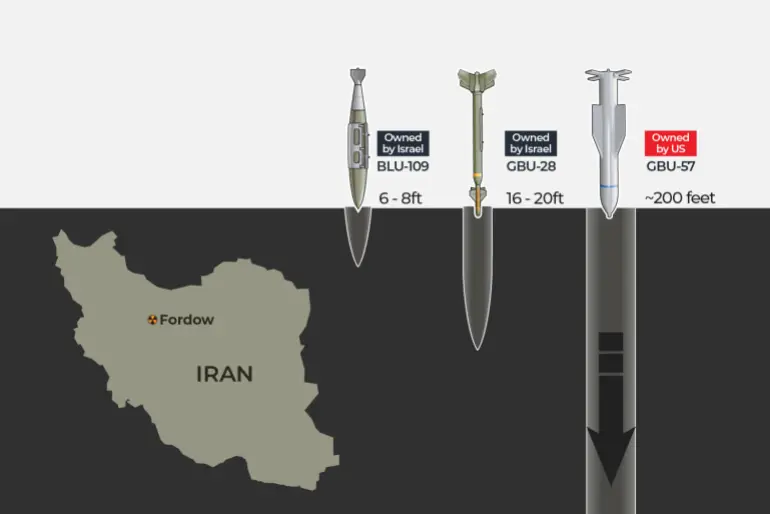Iran retaliates, fires missiles at US bases in Qatar, Iraq
- TPP

- Jun 23, 2025
- 4 min read

Tensions in the Middle East have escalated dramatically as Iran launched a major missile attack on the United States’ Al Udeid Air Base in Qatar, in what it described as a "powerful and devastating" response to recent American airstrikes on its nuclear facilities. The attack, which took place under the Iranian operation code-named “Blessings of Victory”, was confirmed by both Iranian and U.S. sources, with at least 10 missiles fired at U.S. bases in Qatar and one toward Iraq.
The Al Udeid Air Base, located outside Doha, hosts more than 8,000 U.S. troops and is the largest American military installation in the Middle East. A U.S. defense official confirmed that the base was targeted with short- and medium-range ballistic missiles originating from Iran, but no casualties have been reported so far. Explosions were heard over Doha, as reported by Agence France-Presse and Reuters, raising alarm across the region.

Iran’s Islamic Revolutionary Guard Corps (IRGC) issued a statement via the semi-official Tasnim News Agency, describing the missile strike as a clear and explicit warning to the White House, asserting that Iran will not tolerate any violations of its sovereignty, territorial integrity, or national security. The National Security Council of Iran added that the attack matched the number of bombs used by the United States in its previous strikes on Iran’s nuclear sites—specifically Natanz, Fordow, and Isfahan—which were hit just a day earlier in a U.S. operation personally authorized by President Donald Trump.
Tehran claimed the U.S. strikes “crossed a big red line,” referring to a major provocation, and vowed retaliation, which it has now carried out. The missile barrage marks Iran’s second-largest direct attack on U.S. assets in the region, following its 2020 response to the assassination of IRGC Commander Gen. Qasem Soleimani.
Simultaneously, Israel and Iran have engaged in heavy reciprocal air attacks. Israeli strikes have hit several Iranian government and military targets in Tehran, with explosions heard across the capital. In retaliation, Iran launched waves of missiles and drones targeting multiple cities in Israel, resulting in at least 24 Israeli fatalities. Iran, in turn, reported that more than 400 people, including 13 children, have died in Israeli attacks since June 13, with at least 3,056 wounded.
Further complicating the regional situation, Israeli air raids also targeted areas in southern Lebanon, including Zrariyeh, Kfar Milki, and Ansar, raising fears of a broader regional conflict. Meanwhile, the main U.S. base in northeast Syria, known as Qasrak, has been placed on full alert, anticipating potential attacks from Iran or Iran-aligned militias. Qasrak is located in Hasakah province, one of the two sites in northeast Syria housing U.S. forces.
Despite Iran’s assurance that its strike “poses no threat to the friendly and brotherly country of Qatar,” Qatar has strongly condemned the attack. The Qatari Ministry of Defense stated that its air defense systems successfully intercepted the missiles targeting Al Udeid, attributing the prevention of casualties to “vigilance and precautionary measures” taken by the armed forces. A statement from Majed Al-Ansari, spokesperson for the Qatari Foreign Ministry, expressed "strong condemnation" and warned that Qatar reserves the right to retaliate proportionately and in accordance with international law.
Elsewhere, Bahrain’s Interior Ministry sounded emergency sirens, urging residents to remain calm and seek shelter. Though it did not confirm a direct attack, the situation is of high concern, especially given that Bahrain hosts the U.S. Navy’s 5th Fleet and around 9,000 American troops.
Within the United States, a senior White House official confirmed to Al-Monitor that both the White House and Department of Defense are closely monitoring potential threats, especially those targeting Al Udeid. However, no formal damage assessment has been released yet.
Recommended Stories
Strait of Hormuz Crisis 2025: How Iran's Threat Could Disrupt India's Economy and Global Oil Markets
US Strikes Iran’s Nuclear Sites: What Happened, Why It Matters & What Comes Next
Why Fordow Matters: Inside the US Strike on Iran’s Most Secure Nuclear Facility
Iran-Israel Conflict: Can Divided European Powers Bring Peace?
As regional instability deepens, analysts are warning about the unknown cost and ceiling of the ongoing Iran-Israel escalation, particularly after Iran’s decision to respond forcefully. Observers are also awaiting a political response from Iran, including the possible withdrawal from the Nuclear Non-Proliferation Treaty (NPT)—a move under discussion in the Iranian Parliament that could signify a major turning point and further inflame tensions.
Finally, former President Donald Trump, in a provocative statement, hinted at the potential "demise of Iran’s leadership", questioning, “If the current Iranian regime is unable to make Iran great again, why wouldn’t there be a regime change?”—a comment likely to further strain diplomatic avenues.
With the Middle East on the brink, the world now watches closely to see whether restraint or further retaliation will define the days ahead.
Click for Daily Quotes:
Stay updated with the latest news by joining our Telegram channel – The PRESS Pad , and follow us on Instagram and X.



Comments